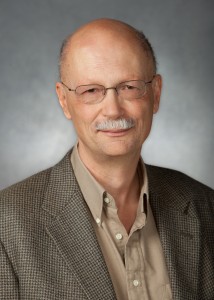As part of the Trudeau Centre’s annual Frank W. Woods Lecture Series, we sat down with this year’s speaker, Professor David A. Lake to talk about his work, the public’s role, and what it’s like to meet with students that use his textbook. Professor Lake is the Jerri-Ann and Gery E. Jacobs Professor of Social Sciences and Distinguished Professor of Political Science at the University of California, San Diego. Professor Lake is the author of over a dozen books, including his latest work The Statebuilder’s Dilemma: On the Limitations of Foreign Intervention, a major political science textbook and countless articles. Professor Lake is the current president of the American Political Science Association. Click here to read all about the 2016 Frank W. Woods Lecture.
Your latest book, The Statebuilder’s Dilemma, talks about statebuilding and its relationship with foreign intervention. What interests you most about this relationship?
Why it doesn’t work. It really began with a set of questions as to when, how, where does statebuilding succeed in accomplishing its goals. We, the international community have spent trillions of dollars trying to rebuild other states, and there’s no visible success to point to. So I began thinking about the potential reasons why statebuilding fails to succeed in developing states that are consolidated and sound.
A big trend today are non-state actors. So how does statebuilding stay relevant, or is it relevant, in a world where non-state actors like ISIS are gaining prominence? How do the rules and the way we look at things change?
We’re concerned about statebuilding primarily because of the problem of ungoverned spaces which provide havens for private violent groups to hide. If we think back to the origin to the concept of sovereignty, it’s a principle where you’re responsible for events that happen within your territory. And so if you are a country from which violence is emanating, you’re responsible for it. And that’s been the main way of regulating private violence for the last couple of centuries: each country has been responsible for groups operating within its own territory. The problem with ungoverned spaces is that there’s no state government in place to provide that service and act responsibly in tacking the groups that hide in those territories.
Part of what makes the Woods Lecture so great is that it’s directed towards a general audience, and it allows guests to share their research with people who might not otherwise have access to it. Considering the timeliness of your work, how do you think a general audience can move beyond headlines and buzzwords to understand these issues more deeply?
I think we as academics have an obligation to try and communicate with a larger audience, and larger audiences have an equal obligation to try and find more information on these issues. I think we have a deep dilemma in that the book requires deep engagement with the subject matter—it’s not something you can tackle with a 30-second spot on the evening news. So, what do you do with the crisis state that’s in the news a lot? It’s very easy to get an emotional response out of the situation in Syria: people are suffering, all the atrocities going on—shouldn’t we do something? It’s easy to invoke a humanitarian response. But the harder question is, what are we going to do about it? What would it take to build an effective state in Syria? And there are no good alternatives. If you’re not going to try and transform the Syrian government into something other than what it is, you might contribute some humanitarian resources but not enough to actually sole the issue. And if you do, you’ll turn it into a pro-Western regime that’s going to lack local support—and you’re sort of caught there in that dilemma. And understanding that dilemma requires the kind of deep thought that not everyone is willing to devote to the issue.
Another great part about the Woods Lecture Series of the opportunity for students to engage with people whose works they’ve read. What’s it like meeting with students who’ve read your work and used your textbook?
It’s always a slightly surreal experience. You write and you don’t know necessarily where it goes, and it’s always humbling to meet somebody who’s read the book, or cracked the cover at least. But sharing ideas and perspectives is always mutually rewarding, I hope. I get a lot out of coming and speaking with students.
What advice do you have for students of PCJ wishing to engage in academia and/or the public sector? Where do you think there can be more change?
Although many people direct their careers towards the NGO sector, I still think a career in government service is the most effective path to change. When you’re sort of inside the beast, if you will, you have the opportunity to think deeply about these issues and come up with effective solutions. NGOs feed into that, of course, but at the end of the day people that actively involved in the government have more of a say in solving these issues in a significant way.
The academic track into that is to actually develop some policy expertise, whether its climate change, or peacekeeping, or whatever there might be, there’s no substitute for developing the expertise necessary for creating policy. For an area of expertise, find what you’re really passionate about. Find a policy issue that moves you, and become as much of an expert as you can on it.
This interview has been condensed and edited for brevity and clarity.
